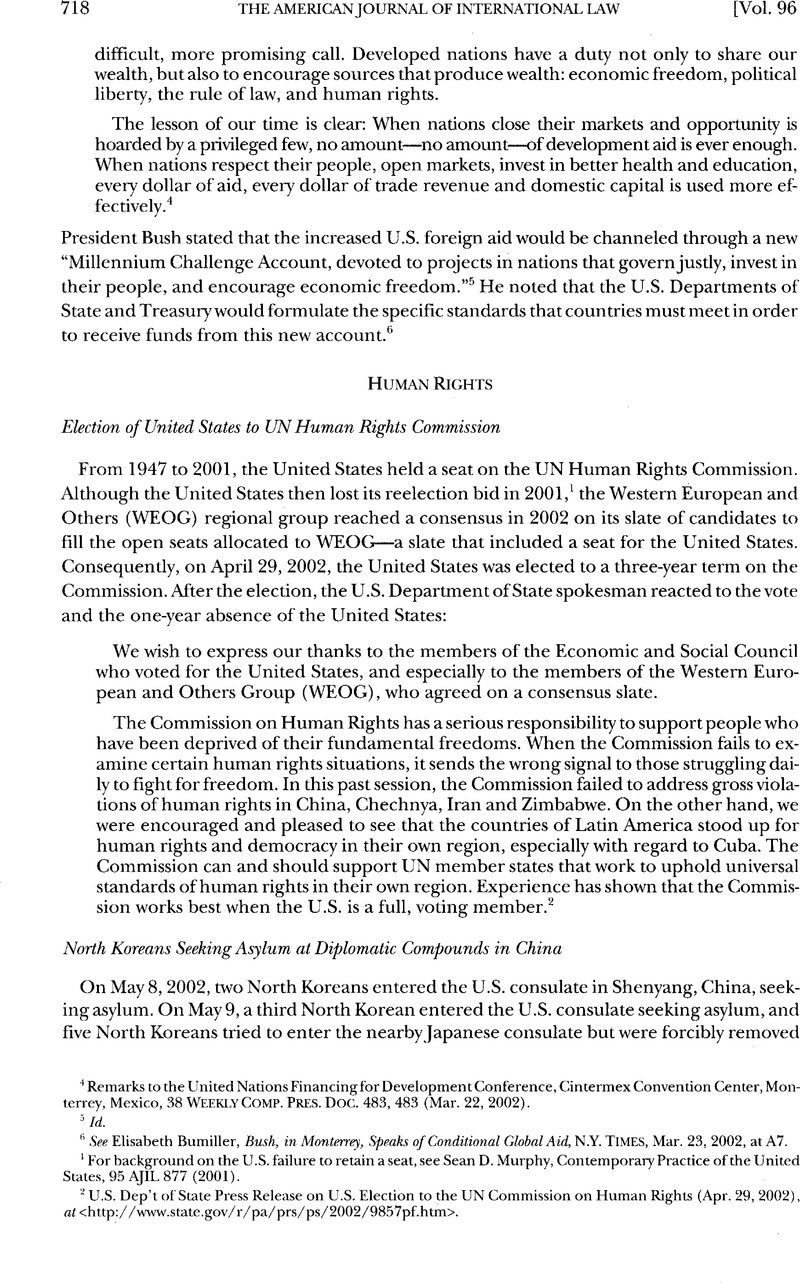No CrossRef data available.
Article contents
North Koreans Seeking Asylum at Diplomatic Compounds in China
Published online by Cambridge University Press: 10 March 2017
Abstract

- Type
- Contemporary Practice of the United States Relating to International Law
- Information
- Copyright
- Copyright © American Society of International Law 2002
References
1 For background on the U.S. failure to retain a seat, see Sean, D. Murphy, Contemporary Practice of the United States, 95 AJIL 877 (2001)Google Scholar.
2 U.S. Dep’t of State Press Release on U.S. Election to the UN Commission on Human Rights (Apr. 29, 2002), at <http://www.state.gov/r/pa/prs/ps/2002/9857pf.htm>.
1 See Rosenthal, Elisabeth, North Korean Migrants Pull U.S. into a Diplomatic Mess. N.Y. Times, May 12, 2002, at 4 Google Scholar.
2 [Editor’s Note: Convention Relating to the Status of Refugees, July 28, 1951, 19 UST 6259, 189 UNTS 150. The United States is not a party to this Convention but is derivatively bound to certain of its provisions (Articles 2 through 34) through adherence to the Protocol Relating to the Status of Refugees, Jan. 31,1967, 19 UST 6223, 606 UNTS 267.]
3 Letter from U.S. Representatives Henry J. Hyde, Tom Landos, James A. Leach, and Eni F. H. Faleomavaega to Chinese Ambassador Yang Jiechi (May 9, 2002) (on file at GWU). On May 21, senior members of the U.S. Senate introduced a concurrent resolution calling upon China to honor its obligations under the Refugee Convention and its Protocol by “making genuine efforts to identify and protect the refugees among the North Korean migrants encountered by Chinese authorities, including providing the refugees with a reasonable opportunity to petition for asylum.” See S. Con. Res. 114, 107th Cong., para. 1 (A) (2002).
4 See Kirk, Don, North Koreans Who Defected in North China Reach Seoul. N.Y. Times, May 15, 2002, at A12.Google Scholar
5 See Philip, P. Pan & Cho, Joohee, N. Koreans Seized at Consulate Freed by China, Arrive in Seoul, Wash. Post, May 23, 2002, at A30 Google Scholar.


